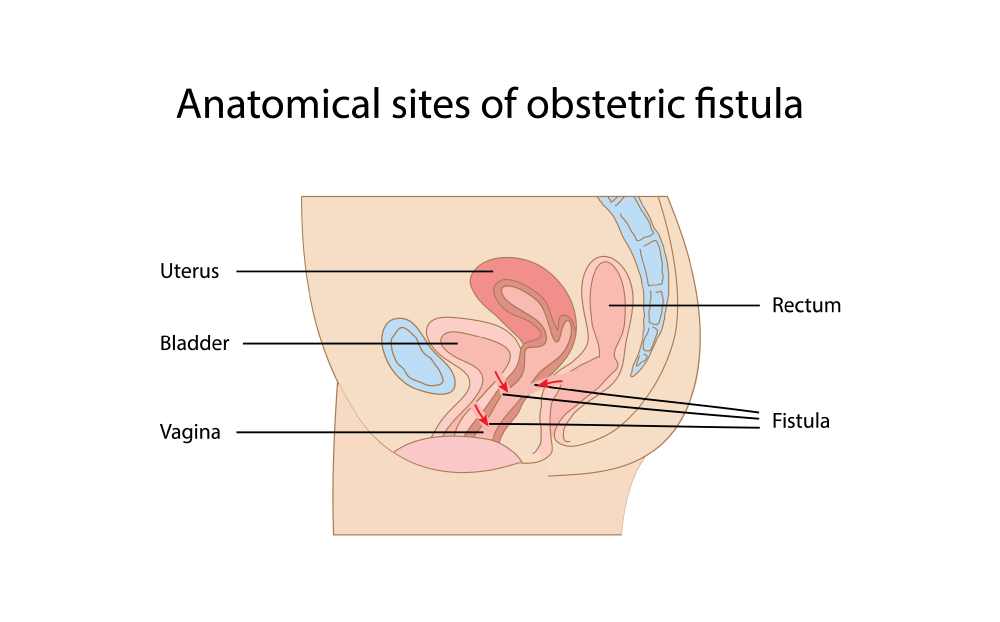A fistula is the abnormal connection between two body parts or organs. Genitourinary vaginal fistula is the abnormal opening between the vagina and another organ in the urinary system (i.e., bladder, ureters, rectum, urethra, or large or small intestine).
There are several types of genitourinary vaginal fistulas, with the most common type being vesicovaginal (VVF). This occurs when an opening is formed between the woman's vagina and the bladder, which causes the leakage of urine from the vagina and can result in frequent vaginal or bladder infections.
Other types include:
If left unrepaired, vaginal fistulas can result in constant or intermittent leakage of urine or feces through the vagina, causing physical and psychological discomfort.

The main symptom of vaginal fistula is constant leakage of urine or feces through the vagina.
Other symptoms can include:
In the United States, urogenital fistulas are less commonly caused by obstetric trauma and are more likely to be a result of surgical complications from a procedure such as hysterectomy or from pelvic abscesses or other pelvic inflammatory conditions. A thorough history usually identifies risk factors that may lead to a vaginal fistula, such as recent pelvic surgery, infection or prior radiation.
Rest assured that people do not spontaneously develop fistulas without an underlying cause discussed above. Depending on the underlying cause of the fistula, it is not always possible to prevent.
An initial exam is required to diagnosis vaginal fistula, which can include a pelvic exam with a speculum, blood work, imaging etc.
Additional diagnostic testing may include:
After the initial exams are completed, your doctor will determine whether non-surgical or surgical intervention is needed. Treatment is determined based on the type of vaginal fistula, its size, and associated symptoms.
To request an appointment, please call our office at (646) 962-7400 or schedule an appointment with one of our providers online below. Our phone staff are available to help you Monday-Friday, from 9AM-5PM (EST).
Meet our expert providers who specialize in treating Vaginal Fistula: